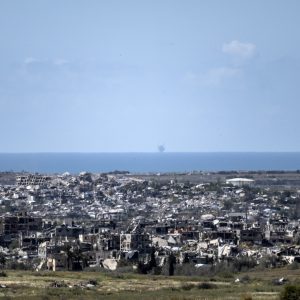Indian top court agrees to hear plea against release of 11 convicts in gang rape case
NEW DELHI (AA) – The Indian Supreme Court on Tuesday agreed to hear two separate pleas challenging the government of western Gujarat state’s remission of sentences of 11 convicts in the Bilkis Bano gang rape case.
Communist Party of India (Marxist) leader Subhashini Ali, independent journalist Revati Laul, and Trinamool Congress party lawmaker Mahua Moitra approached the top court, challenging the Gujarat government’s decision.
Human rights groups and Muslims had expressed outrage over the release of these men serving life sentences for gang rape and murder during the 2002 Gujarat riots, which killed over 2000 people, most of them Muslims.
The 11 convicts were released from jail on August 15 after the authorities approved their appeal for “remission of sentence.”
On March 3, 2002, Bilkis Bano was gang raped, and 14 members of her family, including three-year-old daughter Saleha, were massacred by a mob in the Limkheda area of Dahod district.
Bano was 21 at the time and five months pregnant. She survived the carnage by pretending to be dead.
Gujarat is the home state of Bharatiya Janata Party (BJP) Prime Minister Narendra Modi. He was the state’s chief minister at the time and was accused of doing nothing to stop the killings.
According to officials, the application for remission filed by the 11 convicts was considered due to the “completion of 14 years” in jail and other factors such as “age, nature of the crime, behavior in prison and so on.”
What is the case?
In 2008, a special Central Bureau of Investigation court convicted 13 accused in the case and sentenced 11 men to life in prison on gang rape and murder counts.
After a 17-year legal battle, the Indian Supreme Court ordered the Gujarat government in 2019 to pay to gang-rape survivor Bilkis Bano 5 million Indian rupees (then approximately $63,000), a job, and accommodation – the first such order in the Gujarat riot case.











